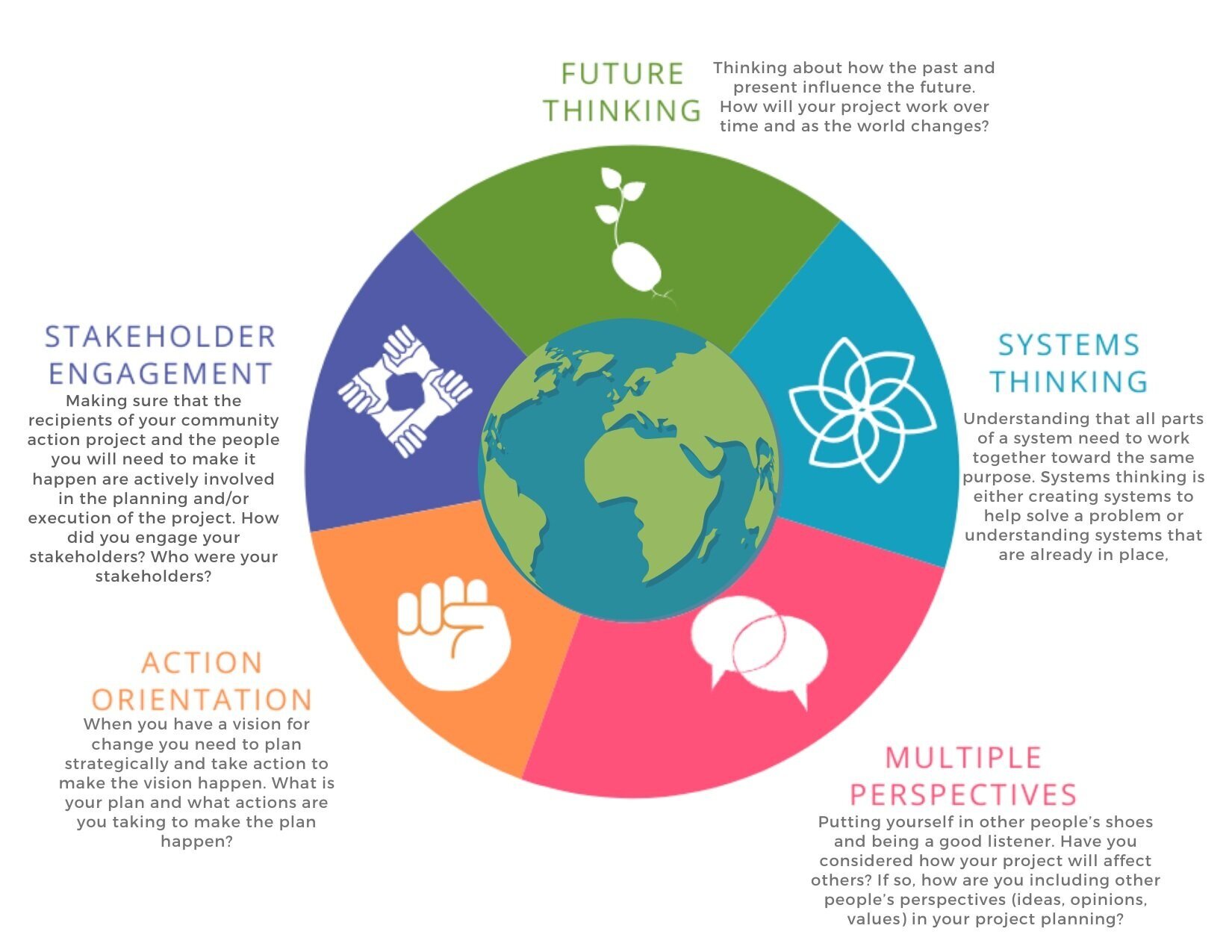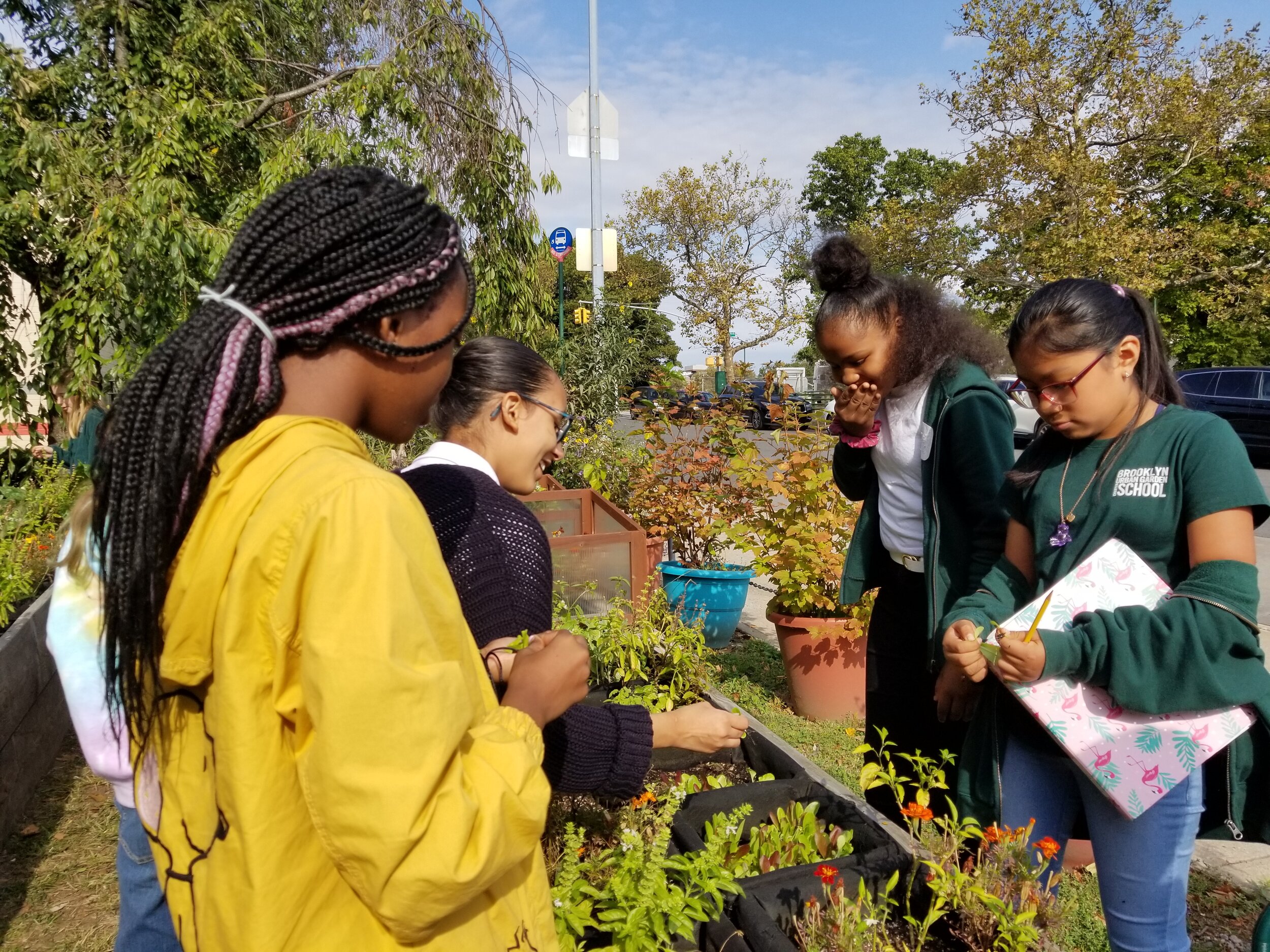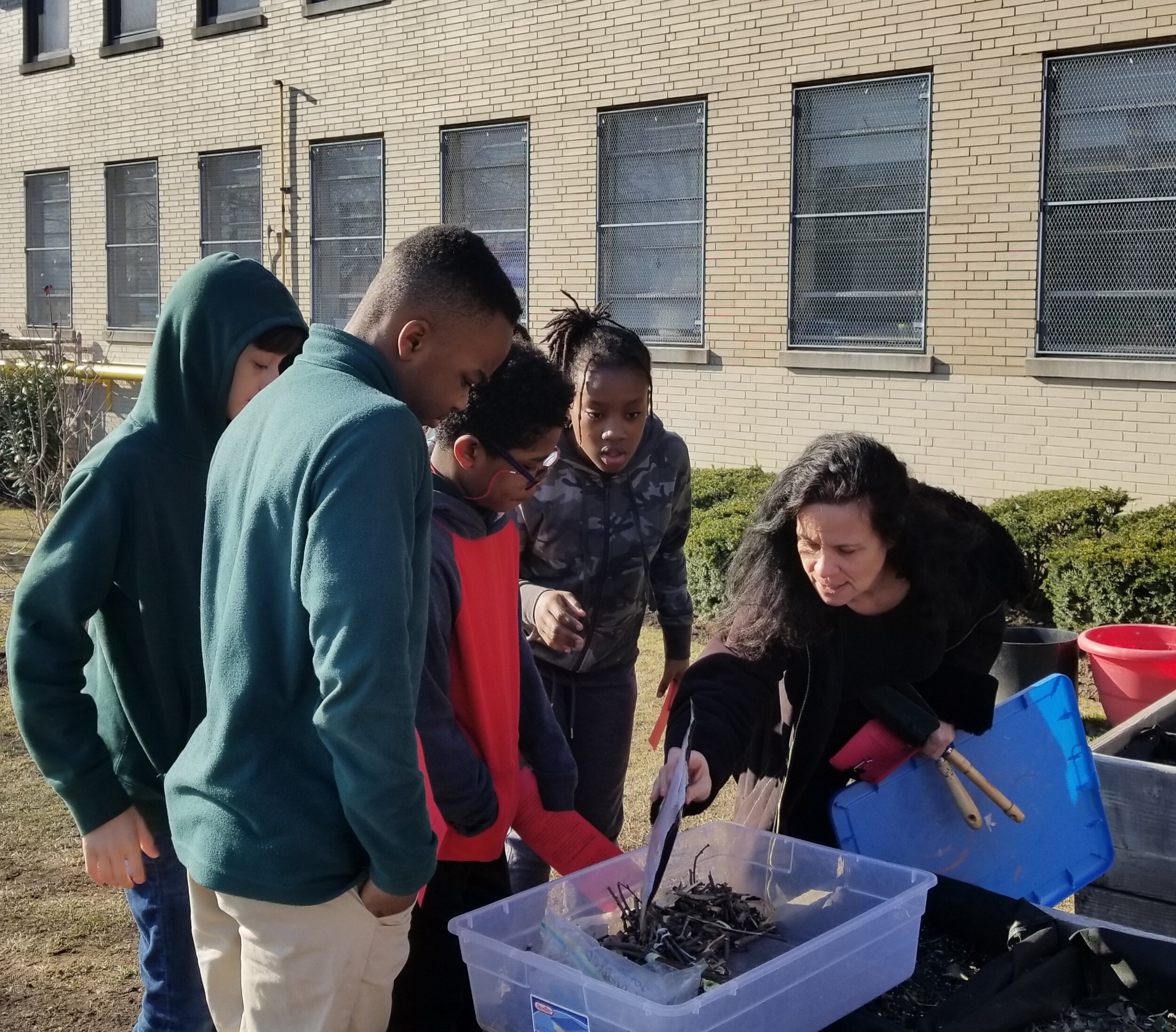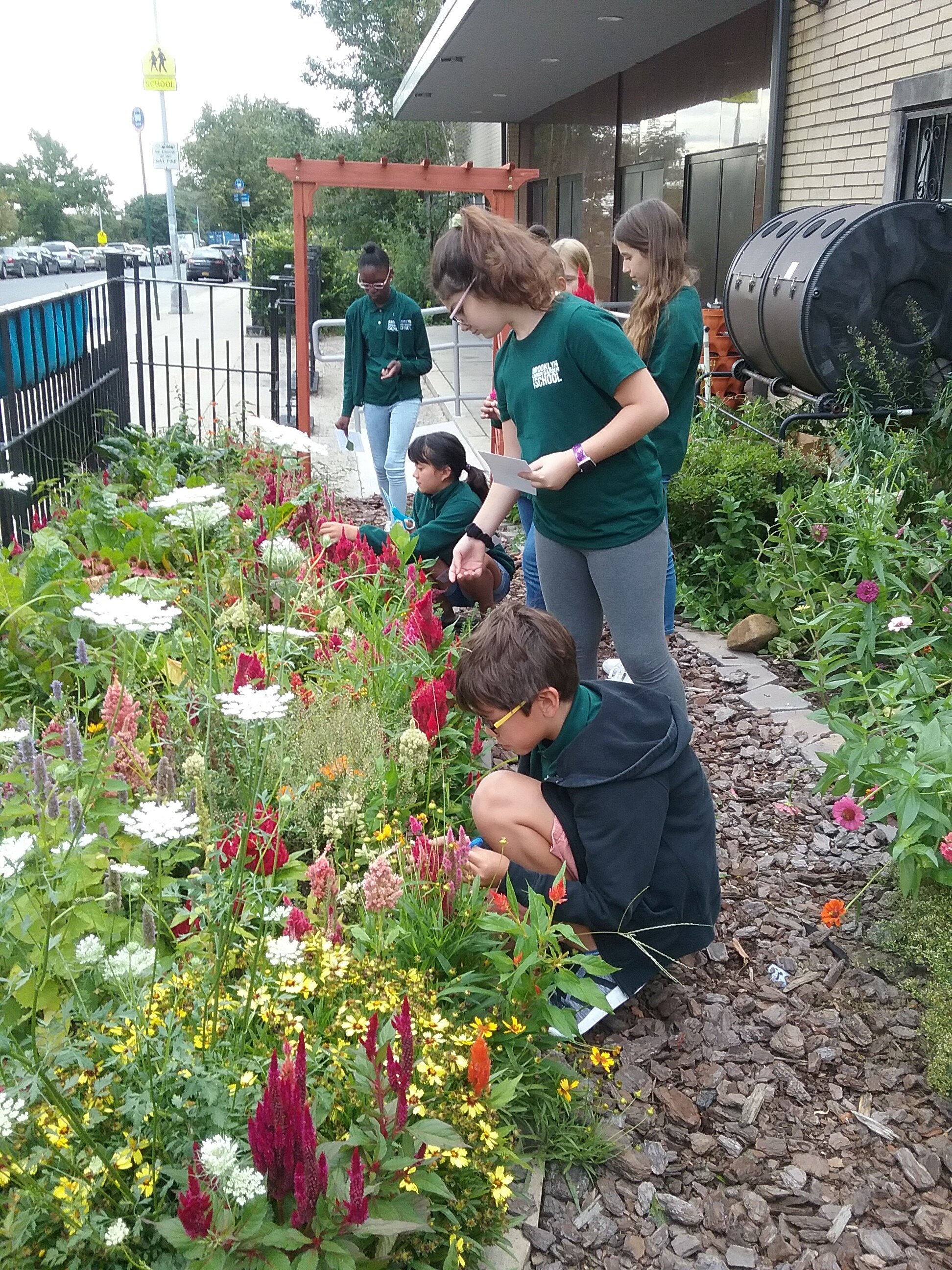Sustainability Education at BUGS
“...you cannot protect the environment unless you empower the people.”
-- Wangari Maathia, environmental and human rights activist
In classrooms at BUGS you see students designing a solar oven for communities with limited resources, surveying and analyzing water consumption, or developing a plan to promote the school’s community market. Our sustainability curriculum provides students with exciting and meaningful opportunities to engage their leadership and voice, critical thinking, problem-solving, service learning, and strategic-thinking skills to create sustainable change in their communities.
Our hands-on interdisciplinary sustainability education with a focus on real-world problem solving and exploration of environmental, social, and economic sustainability prepares our middle school students for success in high school and to become critical thinkers, lifelong learners, and thoughtful designers of a more socially just and sustainable world.
Sustainability Competencies and Approach to Learning
Our model for affecting change and framework for student work design is grounded in BUGS Interdisciplinary Sustainability Competencies (ISC’s), field research, and community action.
The ISC’s foster meaningful connections between classroom learning and what students see and do in their daily lives. Through the ISC framework, students gain an understanding that sustainable and meaningful change requires critical thinking and about stakeholder engagement, multiple perspectives, how systems must work together toward the same purpose now and also with consideration to future thinking, as well as how to create an action plan for successful implementation for change.
Our approach also introduces students to the concept that healthy communities depend on the three pillars of sustainability: people, place, and profit. Teachers apply multiple approaches to engage students in an authentic way in sustainability concepts, including: place-based learning, project-based learning, Service Learning/Youth Participatory Action Research, and S-STEAM (Science, Technology, Engineering, Arts, Math, and Sustainability). Students learn that we cannot protect our planet, without protecting our people and ensuring social and economic equity.
Sustainable practices are also evident throughout our zero-waste school including composting and the 5 R’s of sustainability (refuse, reduce, reuse, repurpose, and recycle). For example, at graduation our students wear gowns made from recycled materials, we choose healthy cleaning products, and encourage students to carry reusable water bottles. We use recycled furniture in our classrooms -- and also fill learning spaces with plants (sometimes animals) and student designed signage.
The three BUGS gardens are our outdoor sustainability classrooms. By learning and studying in the Edible Garden, the Wildlife Habitat, or Peace Garden, students are making connections about how systems support life on earth and our dependence on natural resources, appreciating the responsibilities of environmental stewardship, and understanding how gardens can inspire design, creativity, and new ways of thinking.
BUGS Sustainability Course Sequence
In the BUGS Sustainability Course Sequence, each grade focuses on a different theme and service project. Climate change and the carbon cycle are lessons that "spiral" throughout the curriculum sequence across grades.
The theme of a sustainability course extends beyond sustainability class. Teachers across subject areas collaborate to design ongoing projects that address course topics. For example, in 7th grade social studies, students learn the history and geography of our watershed and, in science and math, they model and test interventions to mitigate runoff from our “schoolshed.”
The school year concludes with Student Panel Presentations about sustainability projects to experts in the field. Students explain their research, present and defend their designs to the panel and receive valuable feedback creating an unforgettable learning experience.
Sustainability classes meet once a week.To further support the connection between learning in the classroom and real world problem solving, we plan monthly opportunities for students to conduct field study at sites in and around NYC.
Each grade-level course includes a Service Learning Project related to the theme and involving health equity issues that affect our communities resulting in students using their authentic voice to create opportunities for community change.
New for the 2020-21 School Year! We are excited to announce that thanks to a major gift from the Green Mountain Energy Sun Club, and also in partnership with NY Sun Works, BUGS will be able to build a hydroponic lab. BUGS also received a Watershed Educators Grant for Trout in the Classroom and Ashokan Partnership.
6th grade
Creating Fertile Soil
Sustainability 101
Students study urban gardening, along with introductory sustainability principles, from the ground up! During the year, they will explore key concepts such as how to define sustainability and the concept of the 3 pillars, the Commons, and “there’s no such thing as away.”
Community Action Project:
school-wide composting initiative
Program Partners:
Department of Sanitation NY, Grow NYC, Million Trees Project, Pre-K, Brooklyn Grange
7th Grade
Water is Life - Catskills-Delaware Watershed
Sustainability 102
Students learn about water at home, in the community, in our region, and the world. They examine who cares for the systems, how does water stewardship connect to the three pillars of sustainability, and what is our role in caring for these water systems. A special feature of this course is the Trout in the Classroom project in partnership with the Ashokan Center.
Community Action Project: Schoolshed, Aquaponics
Program Partners: Trout in the Classroom, Ashokan Center, Billion Oyster Project, Gowanus Canal Conservancy
8th Grade
Urbanization. Climate Change. Agriculture.
Sustainability 103
This final course in the sustainability sequence focuses on urbanization and the concept that food is a right, not a privilege. In particular, students study urban food systems and agricultural technologies. They look at the impact of climate change and overpopulation on cities and examine how we can design and support systems that provide food for all and lower our carbon impact.
Community Action Project: Hydroponics Lab and Garden Cafe
Program Partners: Green Mountain Energy Sun Club, NY Sun Works, Solar 1
snapshot of bugs sustainability Events
YESS! Student Sustainability Summit
Earth Week Service Learning and S-STEAM Fair
DOE Sustainability Showcase
EcoRise Showcase
BUGS Community Art Market and Farm Stand
Spring field study and garden installment
BUGS IS GRATEFUL FOR OUR COMMUNITY PARTNERS
Con Edison
Green Mountain Energy Sun Club
NY SunWorks
Slow Foods
Citizens Committee for New York City
Zero Waste
Billion Oyster Project
Gowanus Canal Conservancy
Ashokan Center
EcoRise
